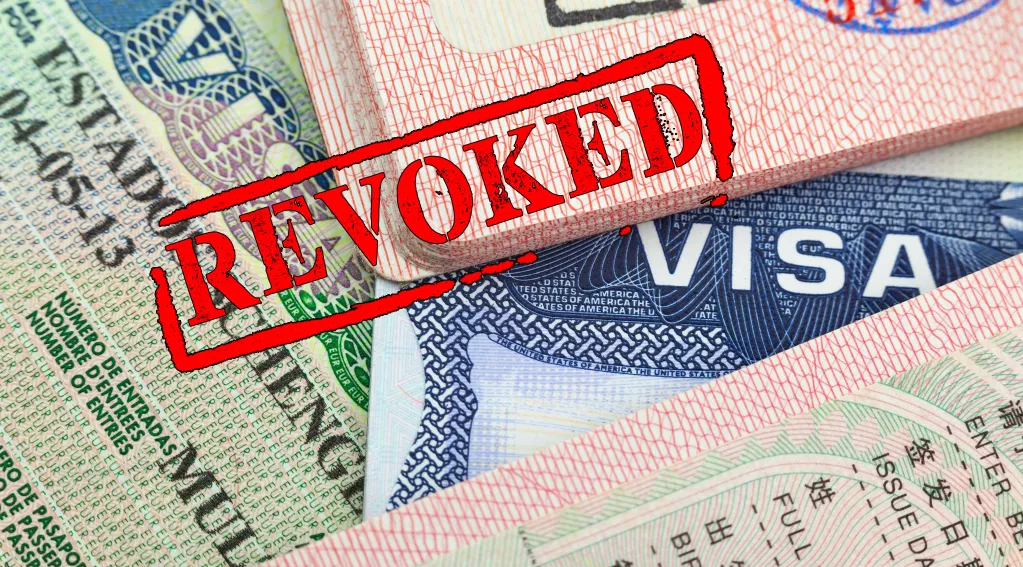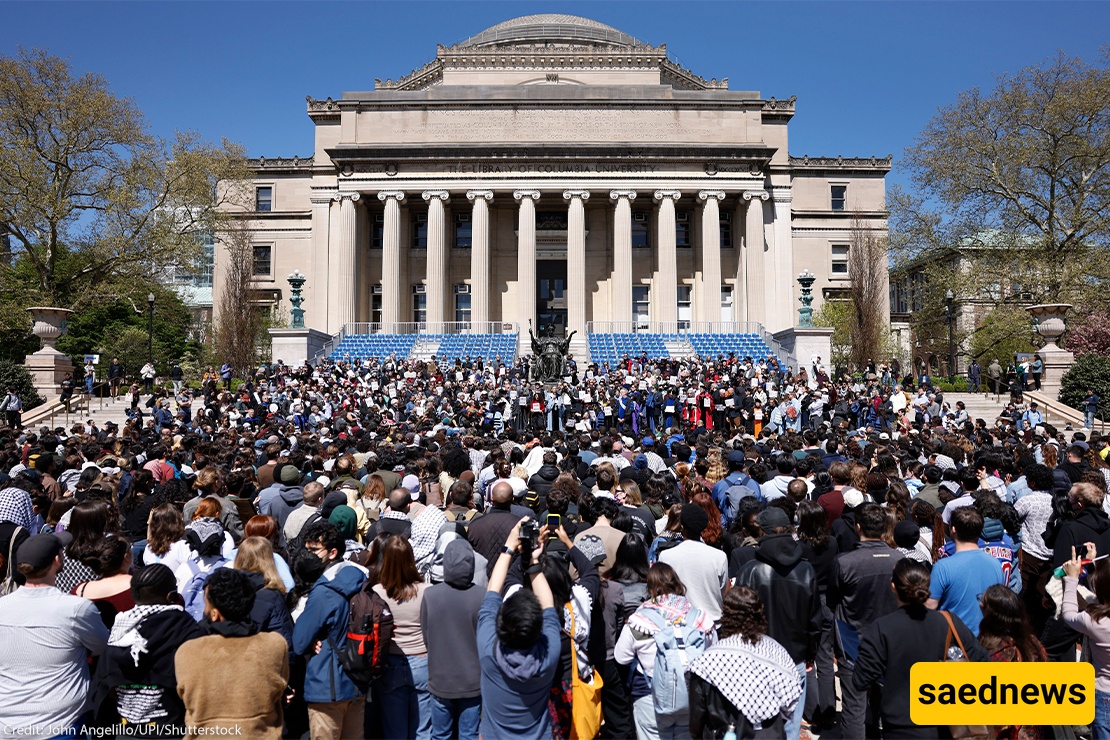SAEDNEWS: The U.S. Department of State has announced that it has canceled more than 6,000 student visas issued to foreign students. This move, which has sparked widespread reactions within the academic community and among international students, has raised concerns about the admission process and the conditions of studying in the United States.

According to Saed News, quoting CNN, the U.S. Department of State has announced that it has canceled more than 6,000 student visas issued to foreign students. This news, which was quickly published in the media, has sparked widespread reactions among students, universities, and foreign policy experts. The cancellation of these visas not only affects the lives of thousands of students but also has broad implications for immigration policies, international relations, and America’s position in the global higher education arena.

From a legal perspective, the U.S. Department of State has stated that this decision was made within the framework of security reviews and visa issuance controls. Although the exact details of these reviews have not been published, officials have emphasized that the cancellations were due to compliance with immigration laws, incomplete documentation, and, in some cases, security issues and possible violations. This move demonstrates the U.S. government’s serious focus on closely controlling the entry of foreign students into the country and reflects stricter policies in the fields of immigration and national security.
From a social and economic perspective, the cancellation of this number of student visas can have far-reaching effects on American universities and higher education institutions. International students make up a significant portion of university revenue and also contribute to the cultural and academic diversity of campuses. A reduction in their presence could result in financial pressure on universities, decreased academic and cultural diversity, and even limitations on joint research projects.
The psychological and social consequences for students are also significant. Many of these students had planned for months or years to study in American universities. The cancellation of visas causes anxiety, disappointment, and a sudden disruption of their educational path. Some students now face changes in plans, returning to their home countries, or searching for alternative options. This situation may also reduce the willingness of foreign students to choose the U.S. as a study destination and affect the country’s standing in international higher education.
From a diplomatic perspective, the cancellation of student visas can put pressure on America’s relations with student-sending countries. Many of these students come from nations with close academic and cultural ties to the U.S., and this move may reduce trust and lead to decreased international cooperation in education and research. Foreign governments are likely to view this action with concern and may adopt stricter policies in future negotiations on student exchange and joint research projects.
Another important point is the impact of visa cancellations on global competition to attract elite students. European countries, Canada, and Australia have been trying for years to attract international students by offering attractive academic programs. The decreasing appeal of the U.S. due to visa restrictions could increase the migration of elite students to these countries and weaken America’s position in global higher education rankings.
From the perspective of media and analysts, this move is considered part of the broader trend of U.S. government hardline policies in immigration and national security. Increased control over visa issuance, focus on university security, and restrictions on the presence of foreigners in some fields are all signs of more conservative policies in education and migration. This issue has also sparked extensive debates about justice, transparency, and the impact of domestic policies on the lives of foreign students.
Universities have also responded quickly. Many American higher education institutions have issued statements emphasizing their support for their students and pledged to try to provide alternative paths for them to continue their education. Some universities have offered legal and counseling programs for affected students and are cooperating with the Department of State to provide conditions for the review of canceled visas.
Considering the economic importance of international students, the cancellation of visas could reduce the income of universities and research institutions. Tuition and living expenses of foreign students form a significant part of university budgets. Their reduced presence not only decreases revenue but could also negatively impact research projects, international scientific collaborations, and academic innovation.
From a psychological perspective, the pressures resulting from visa cancellations can have long-term consequences for students. Anxiety, depression, and a sense of injustice are common among them, and many struggle with confusion and stress in continuing their education or finding alternative options. This issue also affects families and local communities of which these students are part, creating broader social challenges.
In the end, the cancellation of more than 6,000 student visas by the U.S. Department of State marks a sensitive point in the history of higher education and immigration policy in this country. This action has not only affected the lives of thousands of students but also carries broad economic, social, diplomatic, and psychological consequences. The result of this decision highlights the intersection of politics, security, and international education and shows how a domestic decision of one country can have global effects.
Given the extraordinary sensitivity of this issue, universities, students, and foreign governments continue to closely follow the developments and consequences of this move. This case is a reminder that immigration and international education policies are deeply interconnected and that every decision can have broad global impacts.

